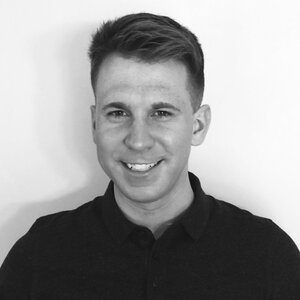
Five Questions with Alumnus Daniel Byrne
Interview by Daria Zelen
-
What is your current position and how did you get where you are today?
I am a Senior Data Scientist for the University of Chicago's Psychology Department, working primarily on problems of information redaction and new natural language processing methods. My route to my current role wasn't exactly direct. After I graduated from the University of Illinois, I attained my master's degree from the University of Chicago and further earned a professional certification in data science from Northwestern University. I combined my research background in communication and psychology with a technical skill set to work in a variety of different work and industry settings from healthcare, political consulting, and now, presently, academic research. By combining skill sets and keeping in touch with old colleagues, I was able to return to my graduate alma mater in my current job.
-
What has been your proudest achievement?
It's difficult to pinpoint my proudest achievement so far. I am proud to be an Illini and a proud graduate of the Communication Department. I suppose I am most proud of the small business I founded in my spare time to translate academic research findings into open-source and commercially accessible software. Furthermore, I feel quite strongly that this work has the broadest impact on the greatest number of people possible.
-
What aspects of your education as a communication student have been the most beneficial to your career?
My communication education not only taught me to think critically and reflexively about how communication underpins all aspects of our everyday and professional lives, but also -- more importantly -- how to communicate effectively. The more challenging parts of my job are not technical in nature, rather it's the need to persuade different stakeholders to choose and take certain courses of action in different contexts. This necessitates that I understand the problem deeply while explaining it clearly at every level of abstraction. So, I regularly recall and apply the knowledge I learned in my rhetoric, interpersonal, and organizational communication classes to my job. I really cannot exaggerate how incredibly talented the faculty and graduate students
are as teachers and mentors. Lastly, and perhaps most formative for me, I also had my first research assistant job in the communication department with Professor Knobloch. This experience gave me lots of face-time with graduate students, department staff, and faculty -- all of whom taught me invaluable lessons in professionalism. The research experience also guided and informed me throughout graduate school and my current work!
-
Getting hired can be really difficult, what are some tips you would give to communication majors entering the workforce?
There is no doubt that getting any job is incredibly difficult. To be perfectly transparent, all of the jobs I have held since graduating have come about from the interpersonal relationships I made while in school or during internships. Do not discount the effects of your personal and professional network! I have read a lot of advice on how to "build your professional network," but I have found that just showing up, trying things outside the norm, applying to jobs and internships, and simply putting yourself out there go a long way. The more opportunities you give yourself, the more you'll get back in return!
-
What advise would you give to current communication students?
Get involved in lots of different activities, clubs, and internships. In fact, I thought I wanted to be a lawyer until I interned with the Felony Trial Division of the Cook County State's Attorney's Office. Choose classes that you think will inform and guide your future career, and similarly, find opportunities that will inform your coursework. All in all, just go for things and take chances!